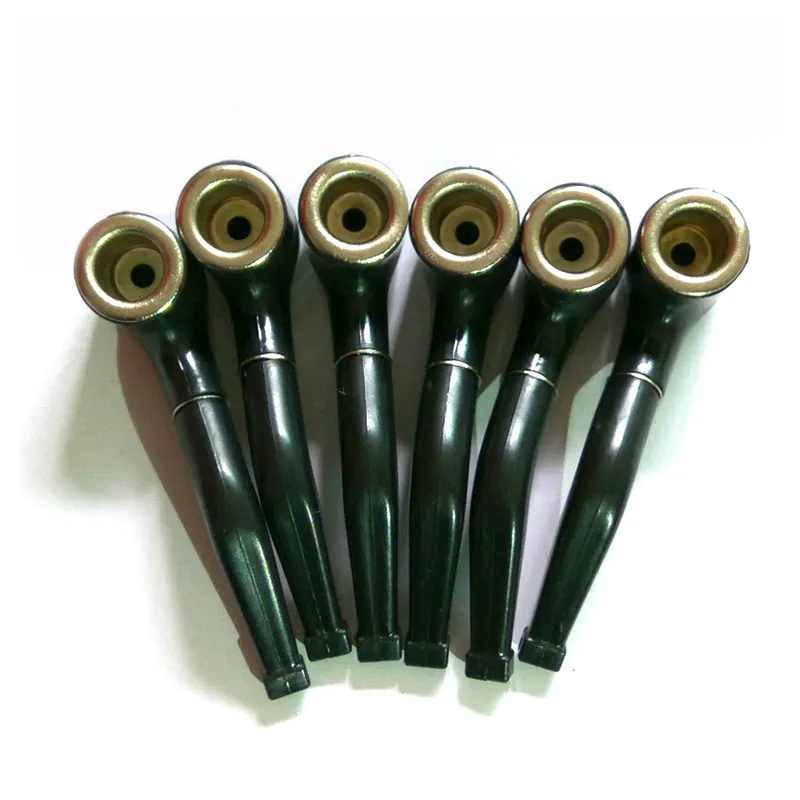“The Medical Cannabis Commission is fully enabled to meet and carry out its responsibilities.”
By Zach Wendling, Nebraska Examiner
It’s not every day that Nebraska’s three branches of government are all involved in a single topic. But one issue is front and center within the next week: medical cannabis.
Days before legislative debate and a Lincoln court hearing, Gov. Jim Pillen (R) on Friday announced “intentions” for executive branch staff to offer available administrative support and resources for voter-approved medical cannabis regulators to begin their work.
“With support from the Policy Research Office, the Department of Administrative Services and other agencies, as necessary, the Medical Cannabis Commission is fully enabled to meet and carry out its responsibilities under the Patient Protection Act and the Regulation Act to meet its milestone dates of July 1 [for regulations] and October 1 [for licensing],” a news release said.
Any regulations proposed by the commission would need to go through the attorney general and the governor. The Policy Research Office is the governor’s personal lobbying and policy arm.
State Sen. Ben Hansen of Blair, whose Legislative Bill 677 seeks to clarify and place additional guardrails, confirmed he will still push forward with the legislation and was “a little surprised” by an executive about-face that now seeks to “unilaterally” enact regulations.
He said he sees LB 677 as the Legislature’s responsibility to act and set parameters for regulators that “can’t be changed at a whim.”
State Sen. Rick Holdcroft of Bellevue, chair of the Legislature’s General Affairs Committee that is mulling medical cannabis legislation, said the executive action diminishes Hansen’s previous argument that the laws could be the “wild west” if the Legislature doesn’t provide more guidance.
“I think there’s actually been some thought into establishing the cannabis control commission. It’s not a bad thing,” Holdcroft told the Nebraska Examiner on Friday.
But Hansen, in response, said: “I’m not worried about the ‘wild west’ anymore. I’m worried about nothing happening, and then we have recreational cannabis in two years.”
He cites voters who have said that if the regulations are too restrictive, they will push a 2026 ballot measure for recreational marijuana, including some voters who prefer only medical use.
Appointees will follow ‘letter of the law’
Hansen adds that part of the reason LB 677 is still needed is Pillen’s two at-large “potential” appointees to the Nebraska Medical Cannabis Commission. Together, they would join the three commissioners pulling double duty on the Nebraska Liquor Control Commission to create the new entity, which voters approved in November.
Pillen has appointed Dr. Monica Oldenburg of Lincoln, an anesthesiologist, and Lorelle Mueting of Gretna, the prevention director at Heartland Family Service, which focuses on drug prevention. Both have consistently opposed efforts pushed by the Nebraskans who prevailed at the ballot box last fall after more than a decade of advocacy.
Still, Pillen said that Oldenburg and Mueting are “experienced, well-qualified individuals” who will ensure strong regulations “to the letter of the law the people of Nebraska enacted.”
“I urge the Legislature to promptly confirm them so they can take up the urgent work of writing strong and effective ‘rules of the road’ for the medical cannabis industry,” Pillen said Friday.
Both Oldenburg and Mueting opposed the closest legislative attempt to legalize medical cannabis in 2021, LB 474, led by former State Sen. Anna Wishart of Lincoln, who later helped the ballot measures. The 2021 bill fell two votes short, 31-18.
‘Other motives may be at play’
Crista Eggers, executive director of Nebraskans for Medical Marijuana, said Friday that while supporters appreciated Pillen’s actions, it is “disingenuous” to characterize the new appointments as “experienced” or “well-qualified.”
“Appointing regulators who are fundamentally opposed to the very issue they are charged with overseeing suggests that other motives may be at play—motives that appear misaligned with the public intent, and not to mention the will of 71 percent of the state,” Eggers said in a statement.
The legalization position passed with 71 percent of the vote, while the regulatory measure trailed just slightly, with about 67 percent support. Eggers and other long-time advocates support LB 677 as an initial step for regulations.
At a March hearing on four medical cannabis bills, Mueting opposed LB 677 and two very similar bills and was “neutral” on the narrowest bill: LB 483, from State Sen. Jared Storm of David City, seeking to limit medical cannabis to tinctures or pills alone. LB 483 sought to legalize up to 300 milligrams, 0.21 percent of the 5 ounces that voters approved.
Both appointees will go before the General Affairs Committee next Thursday for confirmation hearings before the full Legislature weighs in.
Laura Strimple, a spokesperson for Pillen, said the office interviewed three people and selected two. A staff member who oversees application materials for appointees was out of the office Friday, so the materials for Oldenburg and Mueting were not immediately made available.
State Sen. John Cavanaugh of Omaha, vice chair of the General Affairs Committee, said he looks forward to the confirmation hearings but is “skeptical” of Pillen’s sincerity in helping voters.
“I will keep an open mind, but any attempt to restrict what the voters passed through bureaucratic red tape should be opposed vigorously,” Cavanaugh said in a text. “In the meantime, the Legislature should pass LB 677 to make sure that medical cannabis is legal, safe and accessible in Nebraska.”
Executive branch funding
Part of Pillen’s Friday announcement mentions “operational funding” already appropriated to the Medical Cannabis Commission, but when the next two-year state budget passed Thursday, new funding was limited.
The Appropriations Committee offered an annual $30,000 each of the next two fiscal years for employees in the Liquor Control Commission, who take on additional duties under the new laws. In comparison, the Liquor Control Commission has a $2 million annual budget, including for enforcement of regulations for compliance.
There is no additional funding for the remaining two months of the current fiscal year.
The Department of Administrative Services can provide limited financial support to agencies crafting regulations. Strimple, citing the department director who previously oversaw the state’s budget, said the Liquor Control Commission has a cash fund appropriation of $100,000 that is “rarely used.”
“This funding authority will allow for [the Cannabis Commission] to operate, combined with registration fees for revenue,” she said in an email.
The Liquor Control Commission has one cash fund, derived from the commission selling copies of its rules, the law governing its actions and other publications. It also gets funds from a number of fees for registration, server training and more, according to a Legislative Fiscal Office directory of state funds and programs.
State law allows the funds to be used for “any administrative costs” associated with specific liquor statutes. Medical cannabis statutes were placed in a different section of the law, and the budget bills did not expressly authorize additional spending.
Legislative and legal fights await
Hansen’s LB 677 is expected to be filibustered at each stage of debate, at a maximum of eight hours on Tuesday. If so, it would require 33 votes to advance and become law at the end.
Hansen said that considering Oldenburg and Mueting are “both openly staunch anti-medical cannabis people, you can only assume the direction on maybe where they’re going to go with the implementation of this.”
“If we don’t do anything, we have no idea what to expect,” Hansen said.
Holdcroft said he would support Hansen and LB 677 by arguing in favor of a “compromise” amendment to the bill, which gives an extra three months for regulations, prohibits smoking and outlines qualifying conditions.
Pillen previously told the Examiner that cannabis wouldn’t be approved in a form that could become recreational.
“My advocacy for it is that if you have a medical condition [and] you need it, you’ll get it, but it’s going to taste like crap,” Pillen said last month. “It’s going to be a bitter pill to swallow.”
‘Effectively do business’
Also on Tuesday, Lancaster County District Judge Susan Strong will consider oral arguments on whether to dismiss a lawsuit that argues the voter-approved medical cannabis laws are unconstitutional because of federal laws outlawing marijuana.
Nebraska Attorney General Mike Hilgers (R), whose office is defending Pillen and other state officials, fundamentally opposes medical cannabis. He is asking that the case be dismissed, as are the regulatory commissioners and the ballot measure sponsors.
The reason is specific: Hilgers’s staff argues that the Attorney General’s Office and not a private citizen should be the one to challenge the laws.
LB 677 also presents a different threat to a pending appeal to the Nebraska Supreme Court, including from Hilgers’ office, alleging signature fraud in the medical cannabis ballot measures. Strong rejected those arguments in November and upheld the ballot measures. The AG’s Office and a former state senator who brought both cases before Strong appealed.
Because LB 677 would provide additional legislative weight to the 2024 ballot measures, Hilgers and other advocates have acknowledged it could nullify or weaken the pending appeal. Hilgers has said he should get a “fair fight” in front of the high court. He has also pledged to sue the new commission if it issues any medical cannabis licenses in the future, too.
With Pillen’s announcement, he joined the likes of Hilgers and U.S. Sen. Pete Ricketts, R-Neb., who have argued that lawmakers should wait and pass no cannabis-related bills this year.
Said Strimple: “Governor Pillen does not believe it is necessary for LB 677 to pass because with existing statutory authority and resources, the Medical Cannabis Commission will have everything it needs to effectively do business.”
This story was first published by Nebraska Examiner.
Photo courtesy of Chris Wallis // Side Pocket Images.























